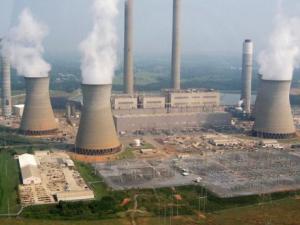Special topics
 The attention of the Africa Centre for Energy Policy (ACEP) has been drawn to the fact that Government has given a “no objection” to the jubilee partners to flare gas until October when The Atuabo gas infrastructure facility commonly referred to as “Western Corridor Gas Infrastructure Development Project” is completed. The project which is being executed by SINOPEC includes the installation of offshore pipeline, onshore pipeline, a gas processing Plant, a Natural Gas Liquids export system for the export of LPG; and an office complex.
The attention of the Africa Centre for Energy Policy (ACEP) has been drawn to the fact that Government has given a “no objection” to the jubilee partners to flare gas until October when The Atuabo gas infrastructure facility commonly referred to as “Western Corridor Gas Infrastructure Development Project” is completed. The project which is being executed by SINOPEC includes the installation of offshore pipeline, onshore pipeline, a gas processing Plant, a Natural Gas Liquids export system for the export of LPG; and an office complex.
Gas flaring is associated with significant environmental and health effects.
First, gas flaring will contribute significantly to greenhouse gases in our atmosphere. This will contribute to climate change, which will have serious implications for both Ghana and the rest of the world.
Second, as is the case in Nigeria, gas flaring could also result in acid rains which could have adverse environmental impacts. For example, it has been reported that corrugated roofs in the
Niger Delta region have been corroded by the composition of the rain that falls as a result of flaring. The primary causes of acid rain are emissions of sulphur dioxide (SO2) and nitrogen oxides (NO) which combine with atmospheric moisture to form sulphuric acid and nitric acid respectively. Acid rain acidifies lakes and streams and damages vegetation. In addition, acid rain accelerates the decay of building materials and paints
Third, the flares associated with gas flaring could contaminate our atmosphere with resultant environmental harm. Science has proven that atmospheric contaminants resulting from gas flaring such as oxides of Nitrogen, Carbon and Sulphur (NO2, CO2, CO, SO2), particulate matter, hydrocarbons and ash, photochemical oxidants, and hydrogen sulphide (H2S) could acidify the soil and deplete soil nutrient, hence reducing the nutritional value of crops within such vicinity. It has also been established that the tremendous heat that is produced and the acid nature of soil pH in gas flaring could result in no vegetation in the areas surrounding the flare. This could affect agriculture – which is the main stay of our economy.
Fourth, there are also human health implications of gas flaring. A review of extant literature has shown that the potential exposure of hazardous air pollutants that are emitted during incomplete combustion of gas flare could result in adverse health impacts such as cancer, deformities in children, lung damage, skin problems, and neurological, reproductive and developmental effects in surrounding communities.
Fifth, aside from the environmental and human health implications of gas flaring, we are more worried that Ghana would lose millions of dollars’ worth of gas which would literally be burnt of daily in the atmosphere over the authorised flaring period. Much of this can be converted for domestic use and for electricity generation purposes. By so doing the level of electricity generation in the country could be raised closer to meeting national demand.
This brings to the fore the importance of hastening the completion of the Western Corridor Gas Infrastructure Development Project to manage the gas to the benefit of Ghana rather than flaring the gas.
In our recent report on gas development in Ghana, we expressed our disgust at the delay in the completion of the Gas Infrastructure Projects and cited the associated cost and revenue losses to the state. The flaring of gas is yet another cost Ghana and Ghanaians have to suffer as a result of our indecision as a country which has led to the delay in the completion of the project.
We therefore strongly condemn the decision by Government to allow the flaring of gas as we believe that enough due diligence was not done; and that the decision was largely influenced by financial consideration rather than the welfare of the people.
In the meantime, we recommend that if the approval for flaring is effected, the process should be well monitored and the Jubilee partners must be compelled to disclose the volumes of gas flared on daily basis. The Partners should also publish their contingency plan in case adverse effects have been established as a result of the flaring. Government must also conduct an environmental audit when the flaring is ended to assess its potential impact on communities.
The findings from the study could guide Ghana on future flaring decisions.
Signed
Nasir Alfa Mohammed
Senior Energy Policy Manager
For Executive Director